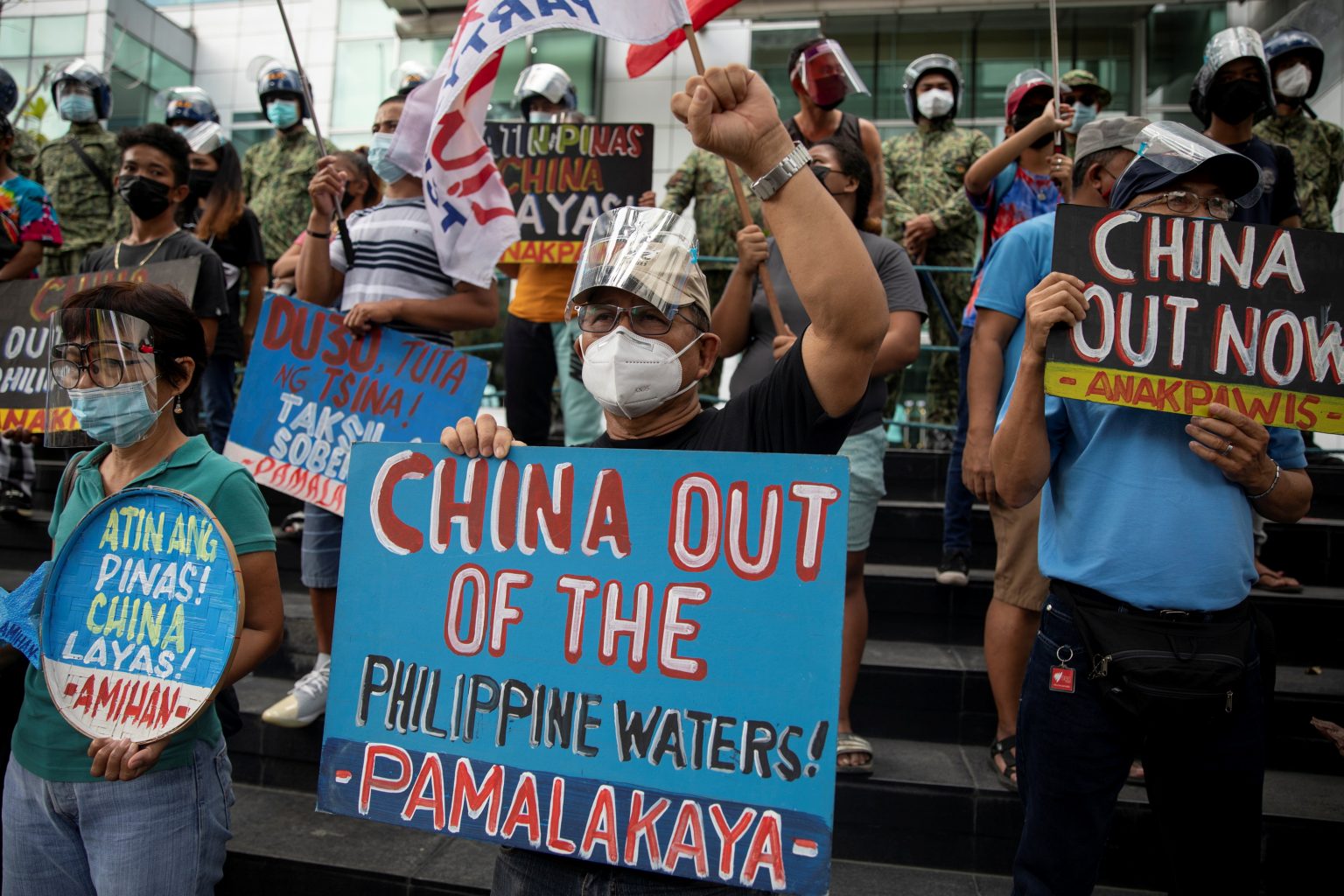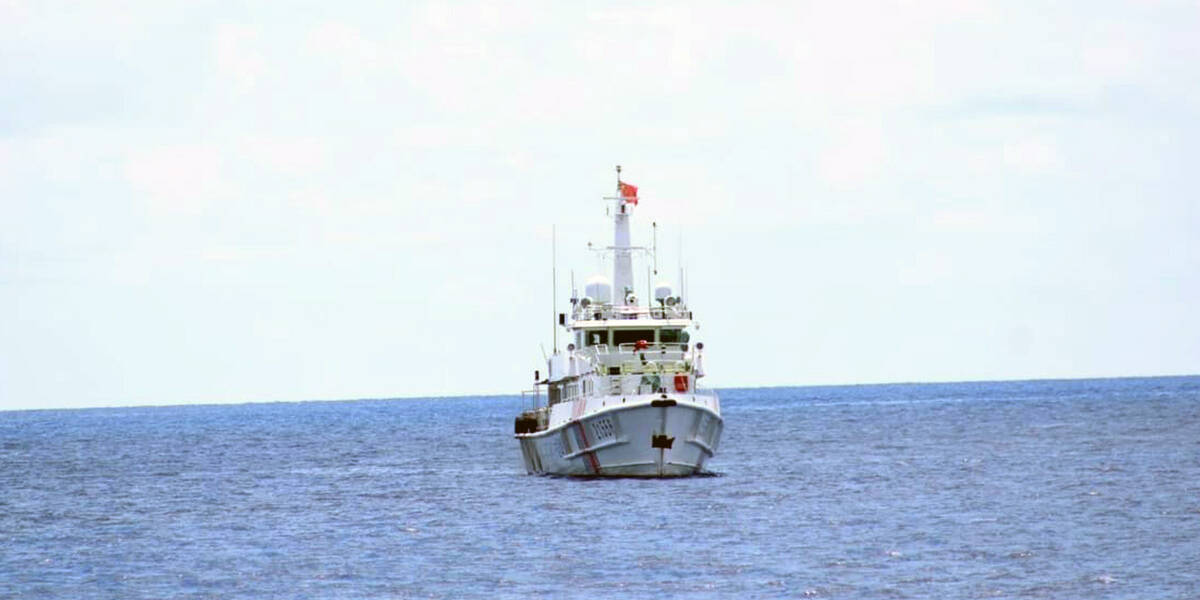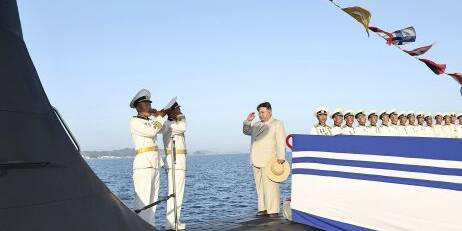Sourabh Gupta, ICAS, for East Asia Forum
The landmark Philippines v China ruling marked its fifth anniversary on 12 July 2021. In its decision, the arbitral tribunal constituted under Annex VII of the United Nations Convention on the Law of the Sea (UNCLOS) made four key observations.

First, it judged that no land feature in the Spratly Islands or Scarborough Shoal were an ‘island’ within the meaning of Article 121 of UNCLOS. The tribunal interpreted the definition of a ‘rock’ — a feature that ‘cannot sustain human habitation or economic life of [its] own’ — as one that effectively hasn’t sustained a settled community of intergenerational habitation or economic life.
On this basis, it limited the maritime entitlements of all features administered by Beijing and Taipei — including Taiwan-administered Itu Aba, which can support a non-sizable population and has served as a transient residence for extended periods but not a permanent home — to no more than a territorial sea. The ruling effectively delimited much of the Philippines’ South China Sea-facing exclusive economic zone (EEZ) boundary.
Second, the tribunal judged that China’s nine-dash line claim to ‘historic rights’ was an exclusive claim of sovereign rights and jurisdiction within the Philippines’ EEZ. Beijing exceeded its entitlements under UNCLOS because it did not administer any insular land feature capable of generating an exclusive entitlement beyond 12 nautical miles, and nor was there an overruling historical basis to sustain its exclusive claim.
Beijing’s subsequent actions on the Vietnamese and Malaysian continental shelf in 2019 and early 2020 have reinforced the validity of the tribunal’s ruling and underscored Beijing’s continuing noncompliance.
Third, the tribunal ruled that Beijing violated its UNCLOS obligations by denying Filipino artisanal fishers their right to engage in traditional fishing within the territorial sea of the China-administered Scarborough Shoal. This local custom-based ‘historic right’ formed part of the ‘other rules of international law’ that coastal states were obliged to protect. Beijing had failed to afford access and protection.
The tribunal did not extend the geographic scope of traditional fishing rights in the EEZ of the Philippines to benefit Chinese artisanal fishers. This runs counter to the extant jurisprudential view that the ‘other rules of international law’ apply with equal force across the exclusive maritime zones specified in UNCLOS.
Fourth, the tribunal ruled that Beijing had violated its international navigation and marine conservation treaty obligations during its law enforcement and land reclamation activities. This finding was informed by a one-sided set of expert testimony that was arranged by Manila, but Beijing was at liberty to participate in the proceedings to dispute the facts. China chose not to participate in the arbitration.
Five years on, the balance sheet of China’s de facto compliance with the arbitral award varies greatly.
For the first time since the South China Sea quarrels burst into public view three decades ago, China has come a significant way towards acknowledging the exclusive sovereign right and jurisdiction of a counterpart claimant state within the nine-dash line. Philippine President Rodrigo Duterte should be applauded for incentivising China’s compliance where no amount of prior diplomatic browbeating and coercion had succeeded.
In November 2018, Beijing initialled a memorandum of understanding with Manila to exploit oil and gas resources on the latter’s continental shelf on terms that implicitly hew to the national patrimony clause of the Philippine Constitution. If the two countries’ authorised enterprise can seal the service contract, it will set a creative precedent of China bringing its development activities within its nine-dash line into compliance with the arbitral award.
China has ceased reclaiming additional land in the South China Sea, building upwards rather than outward. China also hasn’t occupied any new features nor built any new structures on the Scarborough Shoal. Beijing has worked to restore Filipino artisanal fishers’ access in principle to their traditional fishing grounds near the shoal and has refrained from interfering with Philippine resupply missions to its grounded vessel on the Second Thomas Shoal.
China’s compliance with other aspects of the arbitral award have worsened. Beijing shows no sign of vacating its occupation and build-up on Mischief Reef. Because the reef is a low-tide elevation on the Philippines’ continental shelf, regulatory power over the construction and operation of an artificial island on the reef vests exclusively with Manila.
Beijing should civilianise the reef’s functions with a view to handing it over to Manila. Instead, Beijing continues to assert its sovereignty over the sea and airspace surrounding the reef. Beijing also continues to obfuscate the existence and purpose of its fishing militia — even when the militia might be engaged in UNCLOS-compliant activities. This calls into question the intent and reliability of China’s public communications.
As of 12 July 2016, China has claimed on paper — but never exercised in practice — the right to explore and exploit resources on its counterparts’ continental shelf. Five years on, Chinese vessels have conducted survey activity (an exclusive coastal state right) on Vietnam’s and Malaysia’s continental shelf. These activities fly in the face of the tribunal’s award, violate international law, and touched off a blizzard of diplomatic protest notes by interested Western and non-Western member states.
China should continue to seek creative avenues to comply with the award when President Duterte leaves office and rein in its illegal practices in Hanoi’s and Kuala Lumpur’s continental shelf.
Sourabh Gupta is a resident senior fellow at the Institute for China-America Studies, Washington DC.
This article is drawn from an earlier article published here in Lawfare.
Link to the original article can be found here.
Related Analyses
September 15, 2024
West Philippine Sea: Several factors force BRP Teresa Magbanua to return – PCG
0 Comments1 Minute


